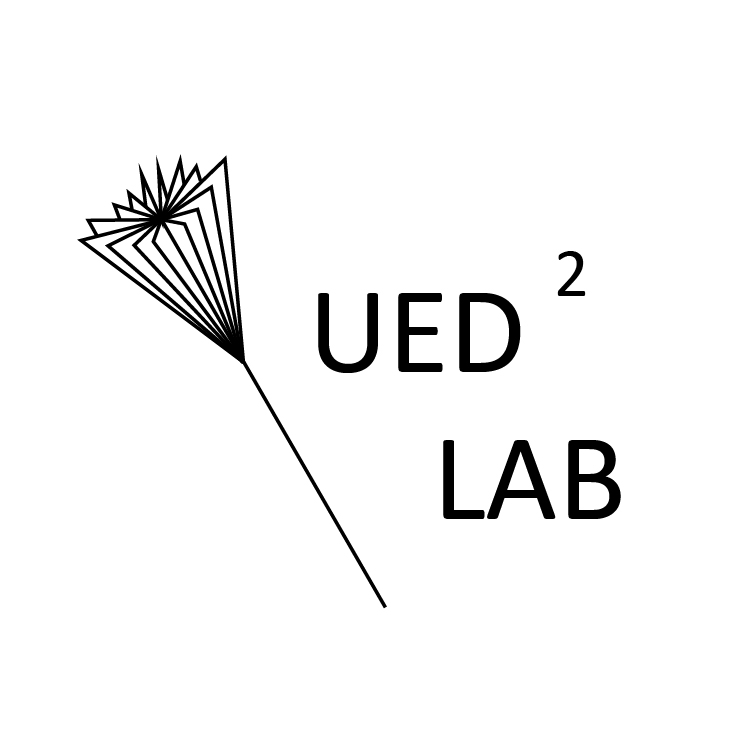UED LAB
The Urban Ecology and Design Lab (UEDLAB) seeks to merge applied urban ecology with landscape architecture and environmental planning, implementing projects that focus on climate adaptation, green infrastructure and engineered ecosystems.

Our Methodology

Applied Urban Ecology and Design
Taking a proactive stance, the UEDLAB integrates experimental research with planning and landscape architecture using designed experiments, resulting in built work, scholarly publications, and professional reports.

Cross-Sector Collaboration
The UEDLAB negotiates across socio-political boundaries, engaging with stakeholders responsible for shaping and inhabiting cities in dialogue during the planning, design, and research phases towards co-management of urban ecosystems.

Multi-Scale Practice
The UEDLAB works across spatial and temporal scales using mapping and site analysis, planning and designing and monitoring and analysis to redesign city form and function in an effort to address the disconnect between human settlements and their supportive biological systems.
Our Approach
We focus on three areas and address current knowledge gaps within each theme and at their intersections:
-
Regional Landscape and Environmental Planning
Regional-scale climate adaptation planning and design focusing on neighbourhoods, infrastructure and ecosystems.
Confronted by increasing climate uncertainty and risk, the improved understanding of landscape processes through regional geospatial analytics is critical in creating long-term resilient urban environments. The UEDLAB, through applied research and spatial and temporal planning, informs evidence-based landscape decisions for regional-scale project development. This is crucial in helping mitigate the loss of life and property, natural system and ecological damage, and social disruption from high-impact events.
We approach climate adaptation through proactive design of civic landscapes and community engagement to support social ecological systems, literacy and education. An example is the Earth Stewardship Initiative (www.earthstewardshipinitiative.com), a National Science Foundation (US) funded program that combined ecological research with community-based land planning and integrated ecosystem resilience and human health working with city agencies.
-
Landscape Architecture
Site-specific landscape ecological design and research-based projects targeting communities, species diversity, and constructed nature.
The UEDLAB develops innovation around greening cities through landscape architecture. We utilise landscape architecture skills building on planting designs, earthwork, constructed food webs. We study biodiversity and vegetation dynamics of urban ecosystems and incorporate ecological monitoring to inform the mechanisms behind constructed urban forests and other biologically rich landscapes. We establish functional habitat as landscape architectural interventions and create new ecological functions for urban areas. We design, test and evaluate green infrastructure performance focusing on water sensitive urban design and biodiversity. We design experiments into civic spaces and develop education for literacy and work with ecological, hydrological, and social analyses to assess urban greening co-benefits. We address gaps in the science and in its translation into decision-making tools through our collaborative work with CSDILA and the Digital Twin (DT). With the DT, we explore the scaling up of site scale field data to larger watershed modelling data and work with data analytics at scales relevant for designers and regulators to be change agents.
-
Landscape Bio-Technologies
Engineering ecosystems at the intersection of ecology, buildings, engineering and social science via combining monitoring and adaptive management.
The innovative use and development of new and emerging technologies enables the implementation of resilient and sustainable design strategies at local scales and with urban landscape experiments. Designing experiments facilitate the integration of monitoring equipment and sensors and field research to inform innovative solutions for high performing, sustainable and climate resilient landscapes. We develop ecological engineering and smart landscapes focusing on site scale to building ecology including WSUD and working with plants and animals and their lifecycles and food webs.
We use bio-technologies and constructed ecoSystems to design symbiotic interactions between infrastructure, public spaces, and users. For the NSF funded Thermogreenwalls project we integrated active heat rejection into a native wetland planted green wall as a distributed HVAC system. We worked with physicists, plant and soil ecologists and water chemists to study thermodynamic functions, ecosystem services, strategic water use, and aesthetics as well as plant health metrics.
UEDLAB Projects
-
Remix Raingarden
-
Macgeorge House
-
Fishermans Bend Water Security & Resilience Living Lab
-
Yalukit Willam Nature Reserve
-
Belize Climate Resilience and Adaptation Tourism Masterplan
-
Birrarung Confluences Report
-
Melbourne Climate Futures: Climate Research Accelerator (CRX)
-
Royal Park Food web design
-
ARC Resilient Intelligent Infrastructure Systems Grant